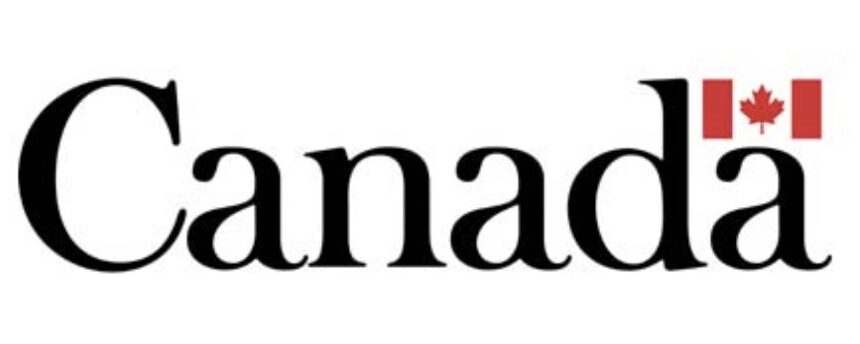Improve Chances of Getting Hired in Canada
Canada is a dream destination for many job seekers worldwide, thanks to its robust economy, high quality of life, and inclusive immigration policies. However, securing employment in Canada requires thorough preparation and a strategic approach. This article outlines effective methods to enhance your chances of getting hired, covering everything from understanding the job market to networking and improving your resume.
Find your Eligibility for FREE!!
Understanding the Canadian Job Market
Canada’s job market is dynamic, diverse, and skill-driven, with industries constantly evolving to meet the demands of a growing economy and an aging population. Employers in Canada prioritize candidates who bring a mix of technical expertise, relevant qualifications, and the ability to integrate seamlessly into workplace culture. To improve your chances of success, it’s essential to understand the sectors that are most in demand and identify how your skills align with these opportunities.
Key Sectors in Demand
- Technology Canada is rapidly becoming a global leader in technology and innovation, with cities like Toronto, Vancouver, and Montreal emerging as tech hubs. Key areas of demand include:
- Software Development: From web and mobile app development to backend systems, there’s a high demand for skilled programmers and software engineers.
- Artificial Intelligence (AI): AI research and development are booming, with Canada home to some of the world’s top AI labs.
- Data Analysis: Businesses need data scientists and analysts to interpret data and drive decision-making.
Candidates in the tech sector often benefit from specialized immigration programs such as the Global Talent Stream, which facilitates fast-track hiring for international workers.
- Healthcare With an aging population and increasing healthcare demands, Canada offers abundant opportunities for medical professionals. In-demand roles include:
- Nurses: Both registered nurses (RNs) and licensed practical nurses (LPNs) are highly sought after.
- Doctors and Specialists: Physicians, surgeons, and other specialists are critical to addressing shortages in rural and urban areas.
- Medical Technologists: Lab technicians, radiologists, and other healthcare technologists are also in demand.
Those with healthcare qualifications from abroad may need to undergo credential recognition and additional training to practice in Canada.
- Skilled Trades The construction and manufacturing industries are vital to Canada’s economy, creating ongoing demand for skilled tradespeople. Examples include:
- Construction Workers: Carpenters, electricians, and plumbers.
- Mechanics: Automotive and industrial mechanics are essential in both urban centers and rural areas.
- Welders and Fabricators: These roles are particularly in demand in provinces like Alberta, where oil and gas industries are prominent.
Many of these jobs offer lucrative salaries and job security, with trade certifications often recognized across provinces.
- Education Education plays a central role in Canadian society, creating demand for professionals in:
- Teaching: Teachers specializing in early childhood education, special education, and STEM subjects are especially valued.
- Academic Administration: Schools, colleges, and universities need skilled administrators to manage their operations.
- Language Instructors: With a diverse immigrant population, English as a Second Language (ESL) and French teachers are in high demand.
Research and Trend Analysis
To maximize your chances of success, thorough research is key. Here’s how to approach it:
- Identify Industry Trends: Stay informed about industry developments by reading reports, attending webinars, and following Canadian job market news. For example, technology roles are growing due to digitization, while healthcare roles are expanding due to an aging population.
- Assess Regional Opportunities: Different provinces and cities have varying demands. For example:
- Alberta and Saskatchewan are hubs for agriculture and energy-related trades.
- Ontario and British Columbia are tech and financial services powerhouses.
- Atlantic Canada offers opportunities in healthcare and skilled trades, often with employer-driven immigration programs.
- Understand Credential Requirements: Some professions in Canada require specific certifications or licensing, such as healthcare, engineering, and skilled trades. Research the necessary steps to validate your qualifications and gain recognition in your field.
Aligning Your Skills with the Market
Once you’ve identified the industries and roles in demand, evaluate your own skills and experience. Ask yourself:
- Do you have relevant education or certifications?
- Are there gaps in your knowledge that could be filled with additional training?
- How does your past work experience align with Canadian employer expectations?
If needed, consider taking courses or certifications to enhance your employability. For instance, tech professionals might gain certification in platforms like AWS or Azure, while healthcare workers may need to pass exams or complete supervised practice hours to qualify for licensing.
By understanding the Canadian job market and tailoring your approach, you can position yourself as an attractive candidate, improving your chances of finding meaningful employment.
Build a Strong Foundation for Success
1. Upgrade Your Resume to Meet Canadian Standards
Your resume is often the first impression you make with potential employers. Canadian employers expect concise, tailored resumes that highlight relevant skills and experiences. Ensure your resume:
- Focuses on achievements with quantifiable results.
- Avoids including personal information like age or photo.
- Is formatted professionally and free of typos.
Consider hiring a professional resume writer familiar with Canadian formats if necessary.
2. Enhance Your Language Skills
Proficiency in English or French is vital in the Canadian job market. Many roles require high levels of communication. To improve:
- Take language tests like IELTS or CELPIP for English and TEF for French.
- Enroll in language improvement courses.
- Practice conversational skills to enhance fluency.
Strong language skills not only boost your employability but also help you adapt to Canadian workplace culture.
3. Leverage Networking Opportunities
Networking is a powerful tool for job seekers in Canada. Build meaningful professional relationships by:
- Attending industry events and job fairs.
- Joining professional organizations in your field.
- Connecting with Canadian professionals on LinkedIn.
Referrals and recommendations often play a significant role in securing jobs.
4. Target In-Demand Jobs and Regions
Certain regions in Canada have a higher demand for skilled workers. Cities like Toronto, Vancouver, and Calgary are known for technology and finance jobs, while smaller towns may offer opportunities in agriculture or manufacturing. Tailoring your search to these areas increases your chances of finding suitable roles.
5. Consider Internships or Volunteer Work
Gaining local experience can set you apart. Internships, co-op programs, or volunteer positions:
- Help you understand workplace dynamics.
- Allow you to demonstrate your skills.
- Build your professional network.
Even short-term roles can be stepping stones to permanent positions.
Immigration Pathways That Boost Employment Opportunities
Understanding immigration policies can significantly influence your chances of getting hired. Popular pathways include:
Express Entry System
This system ranks candidates based on their Comprehensive Ranking System (CRS) score. High-scoring applicants are invited to apply for permanent residency. Points are awarded for factors like:
- Work experience.
- Education credentials.
- Language proficiency.
Improving your CRS score increases your chances of receiving an invitation.
Provincial Nominee Programs (PNPs)
Many provinces offer programs targeting skilled workers. Some PNPs focus on specific industries, making it easier to find jobs in those sectors. Research and apply to provinces where your skills are in demand.
Global Talent Stream
For highly skilled tech workers, this program allows employers to hire talent quickly. It’s an excellent option if you work in fields like AI, software development, or IT.
Post-Graduation Work Permit (PGWP)
International students in Canada can gain valuable work experience through the PGWP. Completing a Canadian educational program gives you an advantage in the job market.
Five Ways to Get a Marriage Visa in Canada
Marriage visas can open doors for spouses of Canadian citizens or permanent residents to work and live in the country. Here are five pathways to obtaining a marriage visa:
- Spousal Sponsorship: Canadian citizens or permanent residents can sponsor their spouse. This process requires proof of a genuine relationship.
- Conjugal Partner Visa: For couples unable to live together due to immigration barriers.
- Common-Law Partner Sponsorship: Available for partners living together for at least 12 months.
- Open Work Permit for Spouses: Spouses of certain work or study permit holders can apply for an open work permit.
- Permanent Residency Pathway: Spouses of Canadian citizens can apply for PR after entering on a temporary visa.
Understanding the requirements and preparing documentation thoroughly is essential for a successful application.
Cities in Canada with Marriage Sponsorship Travel Opportunities
Certain cities and provinces have more active marriage sponsorship cases due to their diverse populations and job markets. Popular locations include:
- Toronto, Ontario: A multicultural hub with ample opportunities for sponsored immigrants.
- Vancouver, British Columbia: Known for its welcoming attitude and strong economy.
- Calgary, Alberta: Offers a balance of city life and affordable living.
- Montreal, Quebec: Ideal for French-speaking individuals or those seeking bilingual environments.
- Winnipeg, Manitoba: Known for its immigrant-friendly policies.
These cities not only provide excellent job prospects but also have strong support systems for new immigrants.
Adapting to Canadian Workplace Culture
Successfully integrating into the Canadian workforce requires an understanding of workplace etiquette. Key points include:
- Punctuality: Being on time is highly valued.
- Communication: Maintain open and respectful communication with colleagues.
- Teamwork: Collaboration is a cornerstone of Canadian workplace culture.
- Continuous Learning: Demonstrate a willingness to upskill and adapt.
Adapting to these norms not only helps you excel at work but also fosters better relationships with peers.
Leveraging Online Job Portals and Recruitment Agencies
Online platforms are an excellent starting point for job hunting in Canada. Popular sites include:
- LinkedIn: For networking and job applications.
- Indeed Canada: Offers a wide range of job listings.
- Job Bank: The Canadian government’s job portal.
Recruitment agencies can also connect you with employers, especially for specialized roles.
Final Thoughts
Securing a job in Canada is an achievable goal with the right strategies and determination. By understanding the job market, enhancing your skills, and leveraging immigration pathways, you can position yourself as a strong candidate. Stay persistent, network effectively, and remain open to new opportunities. With time and effort, you’ll increase your chances of landing your dream job in Canada.







